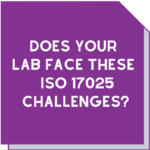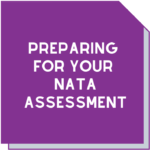Show me the records!
 At MAS, we’ve been part of and carried out hundreds of NATA assessments.
At MAS, we’ve been part of and carried out hundreds of NATA assessments.
It doesn’t take long before you start to see a pattern. You begin to see the same issues emerging and learn just where a lab is going to come unstuck.
Labs know that preparing for their assessment is critical. But labs are also busy places and despite best efforts, it’s possible to miss something. However, when you’re preparing for an assessment, you can guarantee one thing: NATA will always ask for evidence of staff competence.
If you have a new staff member with an excellent background, they won’t just take your word for it that they’re great at their job. And even if they’ve already met your lab staff before, they’re still going to ask for their records.
Here’s some suggestions for how you can prove your people are as good as you say.
New hires
Your records for a newly hired staff member may be a little slim. A copy of their resume and whatever background information you obtained during the recruitment process should be there.
You should also include their induction information. This could include a checklist running through the procedures and processes specific to your business. Be sure to include quality procedures, not just technical ones. If you have a training plan, include that as well.
 However, to demonstrate competence for someone who has past experience in your line of work, all you need to do is have them perform their test(s) or tasks under supervision.
However, to demonstrate competence for someone who has past experience in your line of work, all you need to do is have them perform their test(s) or tasks under supervision.
Ongoing competence
How do you show the assessor that your current staff members know what they’re doing? Because you have a plan in place of course!
Assess each staff member’s competence on a regular basis. What this interval is depends on the tests or calibrations they’re carrying out. It should also be in line with the requirements you put in your quality manual.
After some time doing the same test or calibration, your people could have developed little variations. These could be shortcuts that don’t necessarily affect the outcome but are definitely not part of the stated procedure. And you can almost guarantee that this is what an assessor will pick up during an assessment!
If this variation is an improvement, you could make a change to your procedure. Alternatively, you may need to correct this little variation and steer the relevant staff back onto the correct path.
However, without a periodic skills assessment, you won’t detect those variations. Build this assessment process into your system by having a documented procedure and be sure to record when and how this was carried out.
What’s in the file
 Each employee should have a file that includes their:
Each employee should have a file that includes their:
- Resume
- Copies of relevant qualifications/certificates
- Record of induction into your organisation
- Training records from internal courses, on-the-job training, and any supervised working period
- When and how you assessed they were competent and the method you used
- Records to demonstrate continued competence (periodic assessment for each activity they perform).
We can help
The majority of labs will have no problem with maintaining these records. However, with so much to do before assessment day, it’s possible that something that seems relatively simple could slip through.
We’re able to work with you to develop procedures and proformas that make it easy to keep and update those records.
We can develop an efficient schedule to manage your ongoing assessment frequency, including test or calibration type and risk management.
And we can tailor a simple, effective, and highly relevant training plan to fit your business needs.
Call Maree on 0411 540 709 or email info@masmanagementsystems.com.au and discover how we can make your life easier.
Remember, you don’t have to do this alone!
Download the story Show me the records!
People who read this article also enjoyed:






